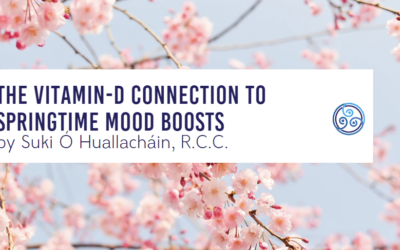There are so many modalities out there in counselling. It is sometimes hard to decide what works for you. I can say that one of the favorite modalities I use during therapy is Acceptance Commitment Therapy (ACT). Some may have heard the term Acceptance Commitment Therapy (ACT) and some may be asking what is that? Well, really what is ACT?
ACT focuses on the psychological flexibility of individuals rather than trying to fight/get rid of those difficult feelings. There are therapeutic modalities that focus on symptom reduction but ACT does not focus on that. Instead, it looks at the difficult symptoms as something that may come with pain. It focuses on the values of what individuals want in their life and moves towards those goals rather than focusing on fixing/getting rid of difficult feelings. It also focuses on psychological flexibility by using compassion and curiosity to develop flexibility skills.
ACT has six core concepts.
The core of the ACT are:
- Acceptance
- Cognitive Defusion
- Being Present
- Self as Context
- Values
- Committed Action
In details, these are
Acceptance
We all go pains when things happen in life. It is inevitable and each one of us will experience difficult emotions. Acceptance allows people to create some space to experience those difficult thoughts and feelings that could be unpleasant. Instead of fighting with those feelings that you want to get rid of, you allow the experience to be there and create flexibility within the person. The opposite of this context is experiential avoidance. Meaning that individuals will try and avoid the experience rather than being in the experience.
Cognitive Defusion
Cognitive defusion is where individuals will recognize their thoughts and feelings are just thoughts or feelings. When people have thoughts like “I am not good enough”, this becomes infused with the person. They start to attach the thought and feelings to themselves. But the defusion process separates the people from the thoughts and feelings and allows more flexibility by not letting them consue the person.
Contacting the Present Moment
This is what you might expect it to be but it is about being in the now moment rather than fixating on the past or the future. These exercises can be achieved by practicing mindfulness, deep breathing, self-massage, grounding, anchoring, and other mindfulness exercises. When people are not contacting the peasant moment, they could be disconnected, distracted, and or disengaged.
Self as Context
Self as a context is where individuals are able to see themselves and see what is happening within them. Notice what is happening within their body (temperature, rigidity, flexibility, tension and etc) or their feelings and thoughts. They will have the ability to step back and recognize themselves. When individuals are not able to reach the self as context, they may start to fuse with their self-concept like “not good enough”.
Values
Values in ACT is what the individuals care about. During therapy, therapist/counsellors will likely ask the clients about what there is about and what they care about. These questions then help clients to focus on steering some behaviour towards what is meaningful to them.
Committed action
When individuals are taking committed action in ACT, it means that they are taking action/behaviour towards their guiding values. When individuals are not in their committed action, people can be experiencing unworkable actions instead. This part of counselling can ask clients about their behaviours and reflect back to the values and guide us to the direction we want to steer back into.
I do practice ACT with my clients but I also practice in my life and “practice what I preach”. Even as a therapist, we too are human and time to time experience difficult feelings. However, I really enjoy ACT because it allows me to create compassion for myself, and be in the present moment. It allows me to look at my difficult feelings with curiosity and ignite creativity to understand myself while taking actions that align with my values.
Overall, ACT helps individuals notice what is happening within them internally and externally. Instead of being reactive to all the feelings and thoughts, ACT helps us become more flexible and normalizes that suffering is part of our human experience.



